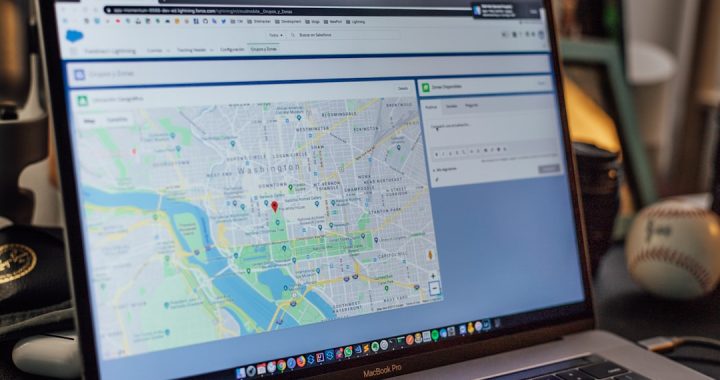7 Helpful Rental Property Management Tips

property management concept displayed on tablet pc
There’s plenty to think about when you’re a landlord to start with – finding the right tenants, keeping your property up to scratch, sorting out any repairs needed, and plenty more. But managing your property’s day-to-day isn’t necessarily the easiest thing in the world, so what kinds of rental property management tips can you use?
We’re happy to help. If you’re struggling to keep things afloat and looking for a quick fix or two to make things run more smoothly, keep reading to find out exactly what we mean.
1. Do Your Research
As a first step, do your research and make sure you understand the local rental market. Work with a qualified real estate professional to help you determine what rent to charge for your property.
Be sure to account for all monthly expenses when setting the rental rate, including mortgage payments, insurance, property taxes, maintenance and repair costs, and utilities. Pay attention to market trends and rent your property accordingly.
In addition, be sure to screen all potential tenants thoroughly. This includes running a credit check and reviewing their rental history. You should also require all tenants to have renters insurance.
2. Have a Plan
It is important to have a clear understanding of your goals and how you will achieve them. This will help you stay focused and on track. You should also have a good understanding of the local market and what renters are looking for.
Your plan should outline who will be responsible for managing your own rental property, as well as how you will find and screen tenants. By having a plan in place, you can avoid many of the common pitfalls associated with renting out property. It is also a good idea to have a backup plan in case something goes wrong.
It is also important to have a budget and stick to it. You should also have a good understanding of the local market and what renters are looking for. Lastly, it is important to be organized and to keep good records. By following these tips, you will be well on your way to becoming a successful rental property manager.
3. Communicate with Your Tenants
Schedule regular check-ins with tenants can be done in person, by phone, or even through a chat or video call. Make yourself available to answer questions and address concerns.
Keep an open mind and be willing to listen to feedback and be responsive to requests and follow up in a timely manner. Keep tenants updated on any changes or updates to the property investment. Being clear about expectations, responding to concerns in a timely manner, and keeping open lines of communication.
Good communication will help ensure that your tenants are happy and that your property is well-maintained.
4. Be Organized
It is important to be organized in order to keep track of your properties, tenants, and expenses. Create a file for each rental property you own. This file should include all pertinent information such as the property address, square footage, number of bedrooms and bathrooms, and monthly rent amount.
Please keep track of your tenants by creating a file for each one, including their contact information, rental agreement, and any other important documents. Keep records of all communication with tenants, including phone calls, emails, and meetings.
Keep track of all maintenance and repairs, and make sure you have a good system for collecting rent. Finally, create a budget for your rental properties. This budget should include all income and expenses, such as mortgage payments, insurance, taxes, repairs, and utilities.
By tracking your finances, you will be able to see where your money is going and make better financial decisions for your rental properties.
5. Know the Laws and Regulations
There are a number of different laws and regulations that you need to be aware of, so it is important to do your research and consult with an experienced property manager. Once you have a good understanding of the laws and regulations, you can then start to put together a plan for how you will manage your property.
It is important to be up-to-date on all the laws and regulations that pertain to your property. This includes everything from local zoning laws to the Fair Housing Act. By knowing the laws and regulations, you can be sure that you are operating your rental property in compliance with them.
This will help to protect you from any potential legal issues that could arise. Additionally, it will also help to ensure that your tenants are treated fairly and are provided with a safe and comfortable place to live.
6. Set Expectations with Tenants
Before you even begin looking for tenants, it’s important that you take the time to set expectations. This will help to ensure that everyone is on the same page from the beginning, and it can help to avoid any misunderstandings or conflicts down the road.
Be clear about what you expect from your tenants in terms of rent payments, property upkeep, and communication. It’s also important to let them know about any rules or regulations that they need to be aware of. If you take the time to set expectations from the start, it will make your life as a landlord much easier in the long run.
7. Maintain Your Rental Property
Inspect your property regularly. This will help you identify any potential maintenance issues. It’s good to have insurance services to prevent damage that disasters like earthquakes or floods could cause, check it out before they become serious problems.
Keep up with regular maintenance and repairs. Address any repair needs promptly to avoid further damage and costly repairs down the road. Keep good records of all maintenance and repair work that is done on your property. This will come in handy if you ever need to submit an insurance claim or provide evidence in a legal dispute.
Property Management Tips That You Must Learn
If you’re looking for helpful rental property management tips, you’ve come to the right place. Whether you’re a first-time landlord or a seasoned pro, these tips will help you make the most of your rental property. From finding the right tenants to maintaining your property, we’ve got you covered.
So what are you waiting for? Get started today and take advantage of these helpful tips.
For more advice on residential real estate and renting out your properties, check out the rest of our blogs.

 Top Networking Events in Atlanta 2023
Top Networking Events in Atlanta 2023  The Complete Salesforce vs. Altify Account Planning Tool Comparison
The Complete Salesforce vs. Altify Account Planning Tool Comparison  Is Goodmooddotcom com Legit or a Scam? Honest Breakdown Before You Use It
Is Goodmooddotcom com Legit or a Scam? Honest Breakdown Before You Use It  Tool Vest Explained: Why Professionals Prefer It Over Tool Belts
Tool Vest Explained: Why Professionals Prefer It Over Tool Belts  How AI Listing Syndication Cuts Vacancy Days
How AI Listing Syndication Cuts Vacancy Days  Unlocking Savings With NewAsshop Free Redeem Codes
Unlocking Savings With NewAsshop Free Redeem Codes  Movierulz 2026: Risks, Reality, and Safer Alternatives
Movierulz 2026: Risks, Reality, and Safer Alternatives  Lighten the Mood: Hilarious Work Meeting Jokes
Lighten the Mood: Hilarious Work Meeting Jokes  Exploring Movierulz 2024: Safe Download Tips
Exploring Movierulz 2024: Safe Download Tips